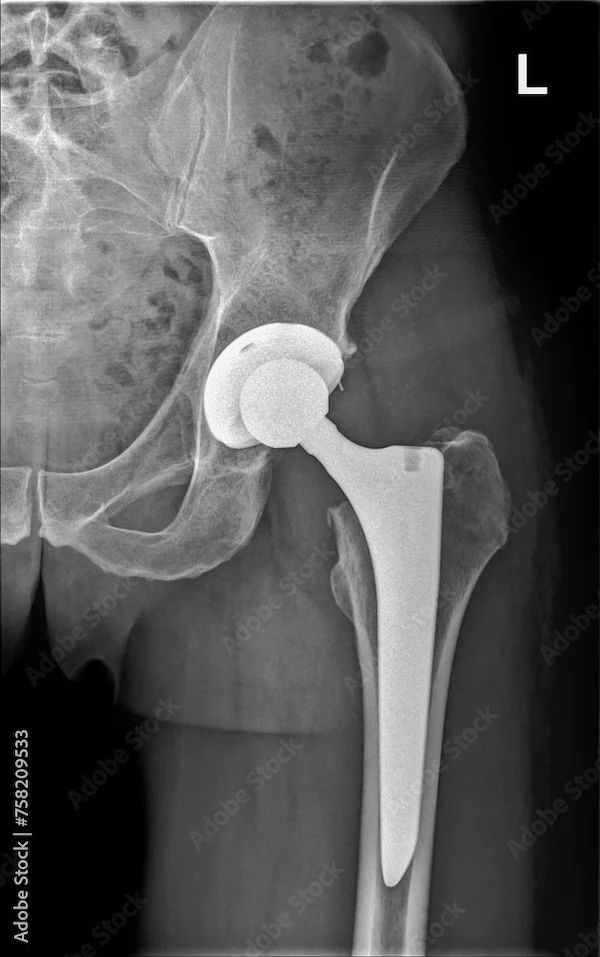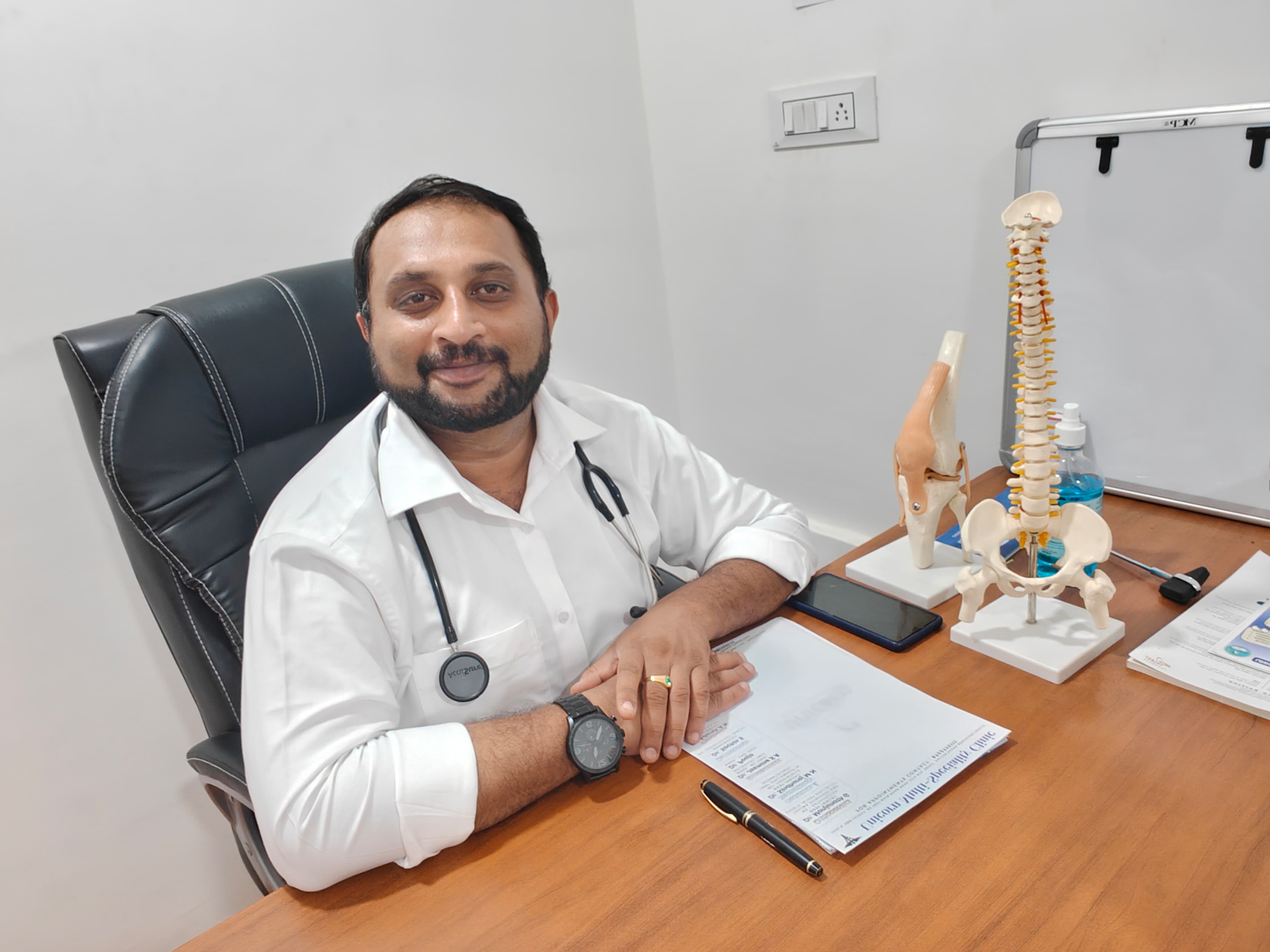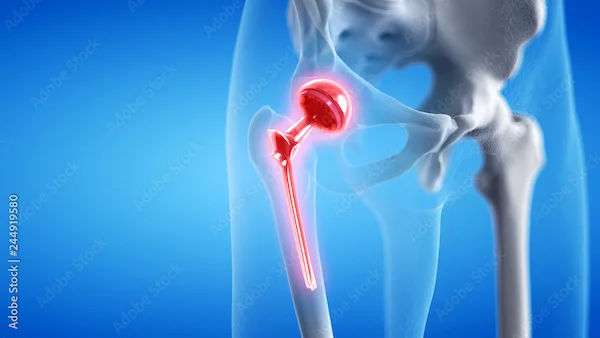Hip Replacement Surgery After 6 Weeks
Discover what to expect 6 weeks after hip replacement surgery, including recovery progress, mobility milestones, pain management, and tips for a safe return to daily activities.

Written by
Last updated on 3rd Jul, 2025

Introduction
Undergoing hip replacement surgery is a significant step toward regaining mobility and reducing pain. The first six weeks post-surgery are crucial for healing, but what happens after that? If you’ve recently had a hip replacement or are considering one, this guide will help you understand what to expect in the weeks following your procedure and how to ensure a smooth recovery.
Understanding Hip Replacement Surgery
Hip replacement surgery (also called total hip arthroplasty) involves replacing a damaged hip joint with an artificial one made of metal, ceramic, or plastic. This surgery is often recommended for people with severe arthritis, hip fractures, or chronic pain that limits daily activities.
Why are the First 6 Weeks Important?
The initial six weeks focus on:
Healing: Your body adjusts to the new joint.
Regaining mobility: Physical therapy helps restore movement.
Preventing complications: Following precautions reduces risks like dislocation.
After six weeks, many restrictions ease, but recovery continues.
What to Expect After 6 Weeks?
Six weeks after surgery marks a significant milestone in your recovery journey. Here’s what you can expect during this important phase of healing and rehabilitation:
1. Improved Mobility & Reduced Pain: By this stage, most patients experience:
Less pain compared to the first few weeks.
Better ability to walk without support (some may still need a cane).
Increased strength in the hip and leg muscles.
2. Gradual Return to Daily Activities: You can slowly resume:
Light household chores (avoid heavy lifting).
Walking longer distances (as tolerated).
Driving (if your surgeon approves).
3. Continued Physical Therapy: Physical therapy remains essential to:
Strengthen muscles around the hip.
Improve flexibility and balance.
Ensure proper joint function.
4. Reduced Restrictions: While early recovery involves strict precautions (like avoiding bending past 90 degrees or crossing legs), many patients can ease these restrictions after six weeks, but always follow your doctor’s advice.
Consult Top Specialists for Personalised Tips
Tips for a Smooth Recovery After 6 Weeks
Some tips for a smooth recovery after 6 weeks are as follows:
1. Stay Active (But Don’t Overdo It)
Walk daily to improve circulation and strength.
Avoid high-impact activities (running, jumping) until fully cleared.
Swimming and stationary cycling are excellent low-impact exercises.
2. Follow a Healthy Diet
Eat protein-rich foods (eggs, lean meat, lentils) to aid muscle recovery.
Include calcium and vitamin D (milk, yoghurt, leafy greens) for bone health.
Stay hydrated to prevent stiffness.
3. Watch for Warning Signs: Contact your doctor if you notice:
Increased pain or swelling.
Redness or warmth around the incision.
Fever or unusual discharge (signs of infection).
4. Avoid Risky Movements: Even after six weeks, some movements can strain your new hip:
Avoid sudden twisting.
Don’t sit on low chairs or cross your legs.
Use assistive devices if needed.
5. Attend Follow-Up Appointments: Regular check-ups ensure your hip is healing well. Your doctor may recommend X-rays to monitor progress.
When Can You Return to Normal Life?
Here's a breakdown of when it's typically safe to return to work, exercise, and daily activities:
Work: You can typically return to desk-based jobs within 6 to 8 weeks, while physically demanding roles may require 3 to 6 months of recovery.
Exercise: Light activities like walking or gentle stretching are usually safe after 6 weeks, but returning to full sports may take 4 to 6 months.
Complete Recovery: Most people feel fully recovered within 6 to 12 months, although strength, flexibility, and mobility may continue to improve gradually beyond that.
When to Seek Help?
If you experience:
Severe pain that doesn’t improve with rest.
Sudden inability to bear weight on the leg.
Clicking or popping sounds with pain.
Consult your surgeon immediately.
Conclusion
Recovery from hip replacement surgery is a gradual process. While the first six weeks are critical, the following months are just as important for long-term success. Stay patient, follow medical advice, and celebrate small progress, and soon you’ll be back to enjoying life with less pain and better mobility!
Consult Top Orthopaedic Surgeon
Consult Top Orthopaedic Surgeon

Dr. Keshav Digga
Orthopaedician
14 Years • MBBS, MS Orthopaedics, FIASM, FIMISS
Kolkata
DIGGA HEALTHCARE, Kolkata

Dr. Pradeep Lucas
Orthopaedician
7 Years • MBBS, Diploma in Orthopaedics, Fellowship in DFSI
Bengaluru
Revival Multispeciality Clinic, Bengaluru
Dr. Anil Sharma
Orthopaedician
42 Years • MBBS, MS Orthopedics
New Delhi
AAKASH MEDSQUARE, New Delhi

Dr. Manjunath Giriyappa
Orthopaedician
9 Years • MBBS , MS (Orthopedics)
Bengaluru
Unicorn Multi-Speciality Clinic, Bengaluru

Dr. Sourav Kumar Pal
Orthopaedician
3 Years • MBBS, MS(ORTHO)
Malda
B S ORTHO, Malda
Consult Top Specialists for Personalised Tips

Dr. Keshav Digga
Orthopaedician
14 Years • MBBS, MS Orthopaedics, FIASM, FIMISS
Kolkata
DIGGA HEALTHCARE, Kolkata

Dr. Pradeep Lucas
Orthopaedician
7 Years • MBBS, Diploma in Orthopaedics, Fellowship in DFSI
Bengaluru
Revival Multispeciality Clinic, Bengaluru
Dr. Anil Sharma
Orthopaedician
42 Years • MBBS, MS Orthopedics
New Delhi
AAKASH MEDSQUARE, New Delhi

Dr. Manjunath Giriyappa
Orthopaedician
9 Years • MBBS , MS (Orthopedics)
Bengaluru
Unicorn Multi-Speciality Clinic, Bengaluru

Dr. Sourav Kumar Pal
Orthopaedician
3 Years • MBBS, MS(ORTHO)
Malda
B S ORTHO, Malda


.webp)

